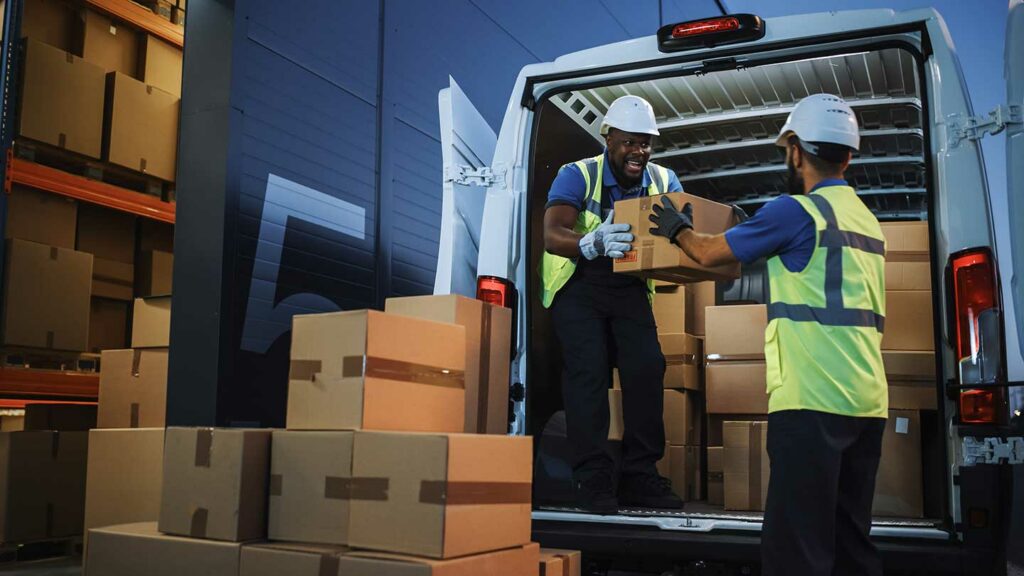Logistics, an essential component of freight transport, is becoming more and more expensive. Discover the causes and consequences of this increase.
Globalisation, supply and demand, health crisis, competitive markets, rising energy prices (gas, oil), climatic conditions… All of this contributes to the increase of the costs of logistics and international transport and thus impacts companies, international trade, the economy, as well as consumption patterns.
Logistics in a nutshell
Logistics consists of managing exchanges and flows of goods between a supplier and a customer. Often associated with the transport sector, logistics activities are part of the intrinsic activity of companies.
While respecting precise specifications, logistics responds to particular needs and customer requests. It uses modern tools that facilitate the traceability of physical flows in real time.
An effective use of logistics makes it possible to coordinate, on the one hand, the internal actors of the company and, on the other hand, the external partners of the company by having a perfect control of:
- The management of the warehouse, the logistics platform and the supply of product references,
- The coordination of distribution networks in response to supply and demand,
- The implementation of shipping tracking solutions that satisfy the customer or the end consumer,
- A reactive and quality after-sales service.
As you will have understood, logistics is essential and necessary for the proper functioning of a society.
Companies must constantly adapt to changes in the markets, supply and demand. In order to remain competitive, companies must continually:
- stand out,
- put the customer at the center of their preoccupations, by offering them new generation tools that will allow the automation of exchanges and improve the flow of information with the entire logistics chain.
In all this, what about logistics-related transport issues?
As mentioned above, transport is inseparable from well-applied logistics. We are talking about rail, maritime, air, river, road or even multimodal transport. It is the strong and essential link without which a company would not be able to operate properly. It ensures a transversal function and promotes the sustainability of the company.
Since the health crisis and the Russian-Ukrainian conflict, we have been faced with an uncertain context. The prices of transport, of the barrel of oil and of raw materials have soared. There is a lack of space on container ships and carriers are running out. Delivery times are getting longer and competition is getting tougher.
Read also:
New regulations on the posting of road hauliers from 2 February 2022
Most companies have been impacted by this situation, especially the ones specialising in e-commerce. Indeed, these parameters have affected the working methods and margins of e-merchants. Most of them are seeing their production costs increase, which has an impact on prices for end consumers.
Inflation of transport costs creates economic tensions with serious consequences and pushes companies to find alternative solutions.
Logistics, in perpetual renewal?

Logistics is constantly evolving and developing. It is a real integrated service for companies with the aim of meeting the specific and identified needs of clients.
Thus, integrated logistics makes it possible to meet specific needs and to optimise:
- The organisation of internal and external services;
- National and international transport;
- The management of customs formalities and customs procedures;
- Flows management;
- The restocking of product references;
- The inventory and supply chain management;
- The handling, routing and deliveries;
- Customer follow-up;
- The improvement of the after-sales service;
- The anticipation of potential problems in the supply chain.
Over the past 3 years, companies have undoubtedly had to demonstrate resilience and innovation. They had to adapt to the shortage of raw materials, to the lock-downs of certain countries, to European borders, to deal with the transport crisis…
The end consumer has also had to adapt his mode of consumption, no longer being able to eat in restaurants, go to the cinema, do his shopping, among other things. He favoured purchases on the internet and certain types of specific products such as food products for example. Despite the context, some e-merchants have seen a boom in their turnover, such as those selling interior or exterior decoration products, gardening items, electronic products or even DIY items.
To meet demand, companies in the transport and logistics sector have had to “rethink” their strategies by adapting to new constraints and external factors. It was necessary to put in place new logistical solutions responding to new consumption patterns, in spite of an inflation rate of between 5% and 10%.
Read also:
A new obligation is imposed on operators of logistics warehouses (article in French)
Rising prices have an impact on companies as well as on the end consumer. This is why a number of customers have decided to produce or consume differently, favouring local distribution channels. This has helped foster local economies, thus improving the traceability of goods and respecting the environment.
Does the inflation of logistics costs lead to a mode of local consumption?
Closed countries, difficulty in restocking, inability of finding containers, increased transport costs, shortage of products, increased packaging costs… The repercussions of the recent crises have serious consequences for companies and the end consumer.
Some have turned away from these issues and have preferred to opt for alternative solutions by choosing new modes of consumption and favouring the short or even local distribution network.
We note that some European companies have decided to reduce the manufacturing or supply of their products from China to Europe or North Africa in order to:
- Optimise modes of transport,
- Turn to sustainable development,
- Improve shipping through local distribution networks,
- Promote local manufacturing,
- Increase distribution points,
- Favour zero stock and just-in-time local flows,
- Reduce costs by promoting recyclable and reusable packaging.
Reducing the impact of logistics cost inflation: the new challenge for companies?
Most companies have suffered the consequences of logistics and transportation issues:
- by moving their stocks,
- by reorganising their logistics and supply chain,
- by looking for new supply channels.
Many have had to revise their strategies to adapt to current and future challenges.
ASD Group’s experts support you at each level of the supply chain by adapting to the specific needs of your company. Depending on your strategy, we define action plans that improve operational processes allowing your company to create new growth opportunities by developing new resources.




